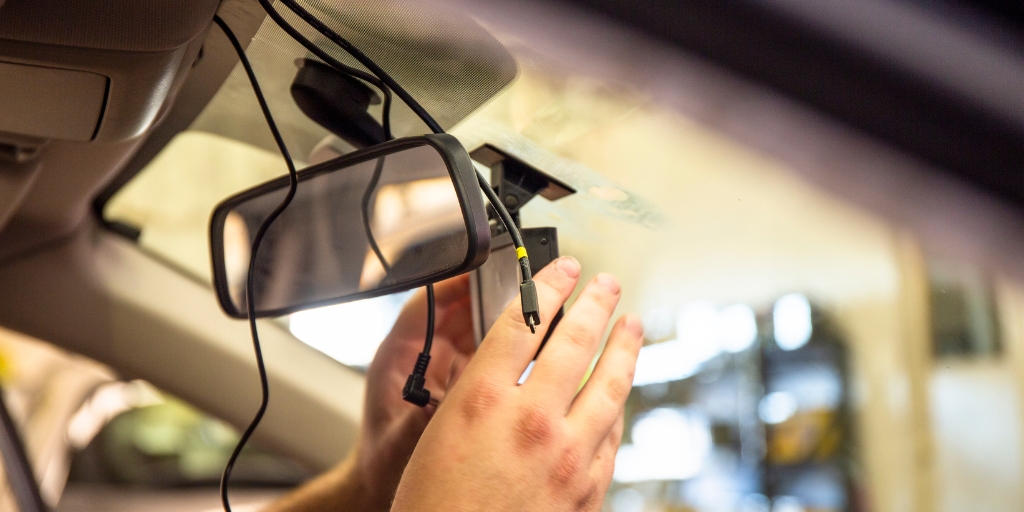Relying on CCTV and Dashcam footage in personal injury claims


One of the most challenging hurdles in a personal injury claim is proving who is at fault for causing the accident. Road traffic accidents are common causes of injuries. Recollections of version of events can vary and understandably are often fogged by trauma individuals experience through such an event.
Historically, witness accounts and accident reconstruction expert evidence has been crucial to establishing liability in a claimant’s case, but increasingly we are finding that dashcam footage and CCTV footage is commonly available and provides invaluable evidence.
CCTV is becoming routinely available in the UK, from council owned cameras, shops, businesses and premises in the vicinity, or dash cams. Many home owners are also installing video doorbells at their homes. Cyclists are also routinely wearing dash cams on their helmets.
If you are involved in a collision and your vehicle is equipped with a dash cam, it is important to preserve a copy of the footage and provide it to the police so it can be used as evidence in your case.
Requesting footage
In the absence of dash cam footage, you might be able to collect footage from other motorists in the area or from the CCTV cameras of the council, local businesses or residents. There is no legal obligation for someone to keep hold of CCTV footage, but you are entitled to make a Subject Access Request for a copy of footage in which you appear. The owner of the footage must provide their permission for release of it.
It is important a solicitor however makes relevant enquiries and requests CCTV footage at the outset as cameras do not hold footage in some cases for more than a few weeks or a month. Some cameras are also overwritten. It is also best practice to make own enquiries for footage rather than rely on the police to do so as in some cases, by the time the collision unit requests footage it no longer exists. Sometimes also a wider search for footage has not been conducted due to limited resources of the police force.
Benefits of CCTV/Dash- cam footage:
· To preserve evidence- they provide a continuous record of the incident which can help piece together an timeline of the events of the lead up, the incident and aftermath.
· To determine fault -: they can provide unbiased evidence of the accident, including road conditions, driver behaviour, and the impact. This can help prove who was at fault and can assist with police investigations.
· Some dashcams record speed and location data which can be used as key evidence to piece together speed, stopping distances of vehicles.
· Having footage can expedite settlement of a claim.
· Evidence can be particularly useful in cases of fatality or serious injury in a collision, where individuals cannot give their own account of what occurred. The footage can also be used by accident reconstruction experts to reconstruct and understand the causes of an accident, i.e. to prove who was at fault, to calculate a vehicle’s speed or, for example and to establish the drivers view and whether it was obscured.
Disadvantages of CCTV/Dash-cam footage
There can be drawbacks to having dashcam or CCTV evidence. In some cases, the footage may conflict with an individual’s recollection of the lead up and the actual collision.
It may also show that both parties have contributed to the collision. The footage will then play a key part in determine apportionment of responsibility of blame of each party (known as contributory negligence).
Overall, footage of the accident plays an important part of evidence in personal injury claims and it is certainly helpful to obtain this from the outset.
Please note
The information on the Anthony Gold website is for general information only and reflects the position at the date of publication. It does not constitute legal advice and should not be treated as such. It is provided without any representations or warranties, expressed or implied.

Related Insights
- January 17, 2017
The importance of CCTV evidence in injury claims
- April 2, 2024
An Unhelpfully Catastrophic Contribution
- October 2, 2023
Compensation For Elderly Client With Life-Changing Injuries
- May 3, 2016
Compensation for bereavement damages under the Fatal Accidents Act
- February 9, 2023
A Case Study of a Road Traffic Accident
- May 29, 2024
A guide to claims after a serious accident at work
Our Latest Injury & Medical Claims Insights
- October 6, 2025
Jess’s Rule – a welcome reminder to reconsider persistent symptoms
- September 26, 2025
Intermediate track injury claims: the rise of early settlement offers
- August 26, 2025
Anthony Gold Solicitors welcome Helen Whittam as a new Support and Rehabilitation Coordinator in the Injury and Medical Claims Team
- August 19, 2025
Contributory negligence and children
- August 13, 2025
Video: From tragedy to triumph – Eliezer’s journey after a life-changing accident
- July 9, 2025
What is Contributory Negligence and How Could it Affect Your Claim?
Related Guides
- April 29, 2025
Understanding The Essentials Of A Clinical Negligence Claim
Latest Articles
View allGuide: October 9, 2025
Guide: October 8, 2025
Contact the Conveyancing team today
Contact us today
"*" indicates required fields
Contact the commercial
& civil Dispute team today
"*" indicates required fields
Contact the Conveyancing team today
Contact the Conveyancing team today
Contact the Wills, Trusts
& Estates team today
Contact the Court of
Protection team today
Contact the Employment Law team today
Contact the Clinical Negligence team today
Contact the Family & Relationships team today
Contact the Personal Injury Claims team today
Contact the leasehold & Freehold team today
Contact the Corporate & Commercial team today
Contact the housing & disputes team
"*" indicates required fields














